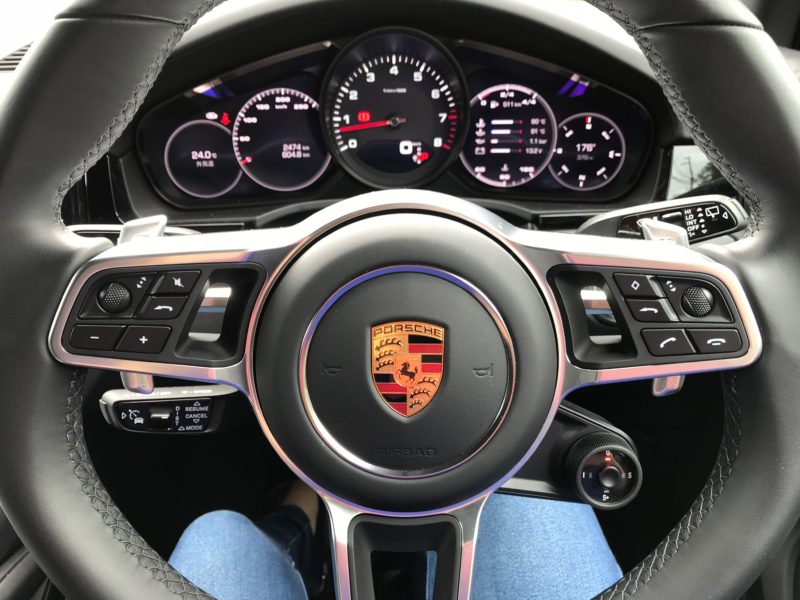The Work Philosophy of a Porsche Owner | What I Did When I Bought a Porsche but Had No Time to Drive It
公開日:2022.01.11

Got a Porsche, but No Time to Drive It
In 2016, my husband purchased his first Porsche, a Boxster GTS (981, MT). However, after buying it,
Even though he finally bought a Porsche, he was so busy with work that he had no time to drive it as things stood. He decided to delegate more tasks to others and create a system that could run smoothly without him. From then on, he resolved to work with the mindset of raising his hourly wage rather than just focusing on annual income.
That’s what he started thinking.
At that time, my husband was still working on the front lines himself, but five years later, the company now runs smoothly even without him.
I had always wanted to hear more details about how he reached this state, but whenever I tried to talk about it at home, the kids would always interrupt, so I never got around to asking.

Then, last weekend, while driving home from my parents’ house on the highway at night, my husband was driving, I was in the passenger seat, and all three kids in the back were asleep, so I decided to ask him the question I’d been wondering about for a long time.
“You said you created a system that runs without you, but what did you start with first?”
He answered like this:
Well… I didn’t go about it by systematizing and training step by step. Instead, I just threw projects at people, letting them gain experience and overcome challenges on their own.
They’d face situations like “My proposal got approved!” or “Oh no, I have to get this done by tomorrow!” and learn to handle it by themselves. That’s how I entrusted tasks.
He continued,
Of course, training and steadily nurturing people is a good approach. It might even develop them faster and more reliably.
But I’m not the type to be passionate about “human resource development.” I’m not very interested in raising people…
My philosophy is, “They’re adults now, so I want them to think for themselves and grow on their own.” So I chose to let them experience projects firsthand and take responsibility.
This way, people might grow more slowly. But my company’s business model isn’t one where we have to constantly chase new clients. I thought it was perfectly fine for people to learn and grow through their own experiences and failures.

I asked, “But doesn’t worrying about failed projects make you want to interfere or micromanage?”
He replied,
Well… I do give advice when asked, but no matter how much you teach, you can’t really understand until you fail or experience it yourself.
It’s the same with starting a business. At first, you go out and make big promises, then think, “Oh no, I actually got the job! I have to figure this out!” and scramble to make it work. That cycle is how you grow.
Also, I felt that people who don’t learn and grow by realizing things themselves wouldn’t fit the culture of my company back then.
I also made sure to assign projects where, even if things went wrong, it was okay. I’d say, “Even if there are some complaints, I can go apologize, so it’s fine.” and then let them handle it.
This approach helped people grow in my company, so I think it suited me.
I see. It takes courage to just throw work at people like that, but if you don’t, they won’t grow.
Also, I often think about risk diversification. If you depend on one client or one business model, when that fails, it’s over.
Just like in investing, where they say to diversify risks, I think the same applies to management.
If you build multiple revenue pillars so that if one fails, others can support you, the company can run without rushing human development.
Well, this might be different from conventional management thinking, though.
he said.
Moving Forward with Your Own Compass, Not Bound by Convention
When I said, “Even if what’s commonly said is A, you choose to go with B… Your attitude of not being bound by convention hasn’t changed at all, has it?”
he said,
I’m not the serious, model-student type of CEO to begin with, haha. I was always thinking about how to make time to drive my Porsche.
Even as a kid, I never did my summer homework until August 31st, and I was always thinking about “how to make things easier” and “if there’s a shortcut somewhere.”
In that sense, I don’t care about what teachers, parents, or others think. More important than others’ opinions is “my own comfort” and “freedom.”
So regarding company management, I don’t have the desire to “grow sales or scale up” or “impress others.” I don’t care if others go public or grow.
Instead, I’ve always wanted to build a financially strong company.
A company with high productivity and profit per employee, multiple profitable pillars, and one that doesn’t flinch at minor shocks. I’ve been working toward that, and the methods I use aren’t the usual ones but ones that fit us.
I see…

After hearing my husband’s story this time, I thought, “I wish I’d heard this kind of story much earlier.” Maybe I did, but at the time I didn’t really understand or wasn’t listening seriously enough…
I’m the type who does everything myself—a typical craftsman—and I like working hard.
Of course, I think that’s my strength.
But now, approaching 40, with young kids and a body that can’t push like in my 20s, I’ve come to strongly feel that I need to break away from my old ways, create systems that run without me, and change how I earn.
I know it won’t happen overnight and will take a few years, but luckily, my husband, a senior in both business and life, is nearby, so I hope to absorb a lot from him and put it to good use.
During our conversation, I also asked about his future work and earning style, and he gave a very interesting answer, which I’d like to share in another blog post.
このブログが気に入ったらフォローしてね!


Comment ( 0 )
Trackbacks are closed.
No comments yet.